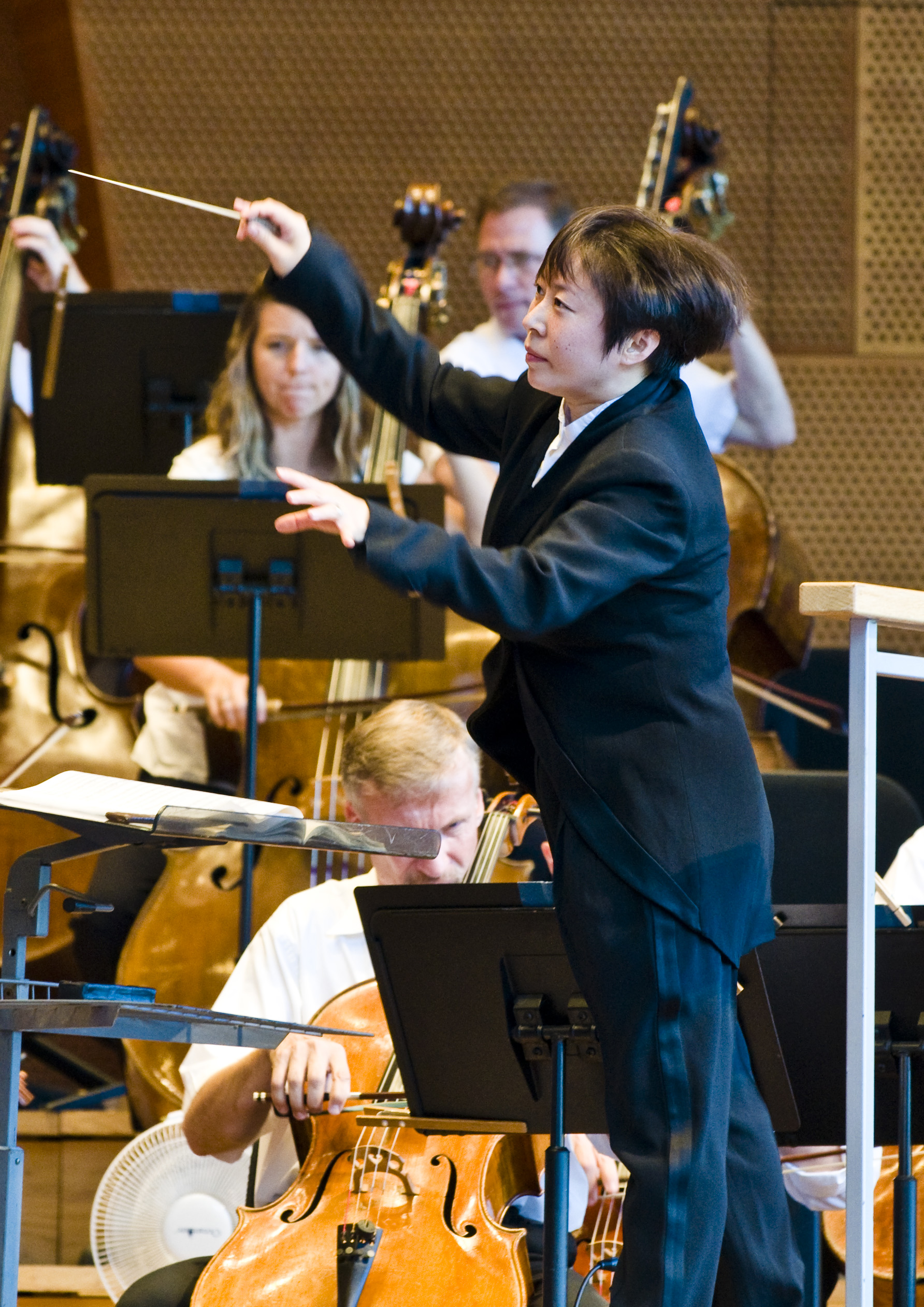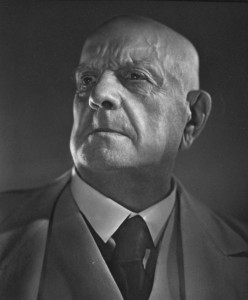Sibelius soars on a glorious evening with the Grant Park Orchestra

It was one of those perfect evenings at Millennium Park Friday night, with clear skies and mild temperatures that make you believe there is nowhere better in the world to hear a summer concert than Chicago’s lakefront.
The nicely balanced program spotlighting Sibelius and Prokofiev marked the Grant Park Music Festival debut of conductor Xian Zhang. Former associate conductor of the New York Philharmonic, Zhang is currently music director of the Giuseppe Verdi Symphony Orchestra of Milan, and will return to lead the CSO in December.
The Chinese musician is a formal yet demonstrative podium presence, conducting—at times, over-conducting—with outsized gestures and wide swooping arm movements. If not the most economical of podium technicians, Zhang obtained largely successful results.
Sibelius has always seemed like an underutilized resource for al fresco music-making. The cool power of the Finnish composer’s music is a surefire way to offset the heat and humidity of the summer season—though with Friday’s balmy temperatures, no one was suffering. Sibelius’ Symphony No. 2 was having only its second performance at the lakefront festival and the first in 74 years.
For much of the last century, Sibelius’ Second Symphony was characterized as a crypto-protest against Russian domination of the composer’s Finnish homeland. To be sure, in the symphony’s broad dramatic arch with its dark rumination, aching nostalgia, roused resistance and hard-won victory, there is clearly some nationalistic inspiration.
Yet the Second is also undeniably music from a Northern latitude, with the dominance of the low strings, bracing wind skirls and sharp brass notes conveying something of the elemental forces and austerity of the Finnish landscape.
This is not an easy work to bring off, and, in the opening movement, Zhang’s direction seemed a bit segmented, the conductor drawing out details at the expense of forward momentum.
The performance gathered in assurance and dramatic power as it unfolded. Zhang is clearly a Sibelian to be reckoned with and she soon demonstrated a clear and idiomatic handling of this vast canvas, conveying the brooding introspection of the Andante, the agitated resistance, and the rustic nostalgia of the wind writing. Zhang paced the finale with great skill, the broad main theme building to a stirring and resoundingly triumphant coda.
Apart from some surprisingly maladroit oboe playing, the Grant Park Orchestra gave their considerable best with the low strings and brass at their finest, particularly the clarion gleaming trumpet playing of David Gordon, Billy Hunter, and Channing Philbrick.
The evening led off with music of Zhang’s compatriot, Chen Yi. Her Ge Xu (Antiphony) was inspired by the Zhuang people of southern China, who mark the New Year by singing antiphonal field and mountain songs. The short curtain-raiser segues from high violin passages and lowing horns to a rambunctious rhythmic Allegro with a strong folk flavor, percussion to the fore. It’s a lively inoffensive work redeemed by an unexpected quiet ending, and the Grant Park members provided ardent advocacy for their guest conductor.
Serge Prokofiev’s music has a strong Chicago connection with the Chicago Symphony Orchestra giving the world premiere of his Third Piano Concerto with the Russian composer as soloist. Prokofiev’s opera The Love for Three Oranges was another Chicago premiere, commissioned by the long-defunct Chicago Opera and unveiled in 1921.
Prokofiev’s satirical style is at its most acidulous in this lampoon of royal court life and theatrical conventions (and perhaps, from a safe distance, the new and rigid Soviet bureaucracy). The suite, heard Friday, draws on the opera’s most flamboyant sections from the celebrated sardonic March to the cacophonous, quaintly titled opening, The Ridiculous Fellows.
Zhang and the Grant Park Orchestra gave Prokofiev’s score alert and, often, bravura, playing, the string players fairly flying through the running passages of the Infernal Scene. In such audacious music, at times Zhang’s direction seemed a bit literal and under-characterized. Still, the orchestra played superbly, and Zhang was mostly responsive to the score’s colorful effects, as with her bringing out the lyric warmth of The Prince and the Princess, the romantic delicacy leavening the predominating sarcastic edge.
The program will be repeated 7:30 p.m. Saturday at the Pritzker Pavilion. www.grantparkmusicfestival.com.
Posted in Performances





